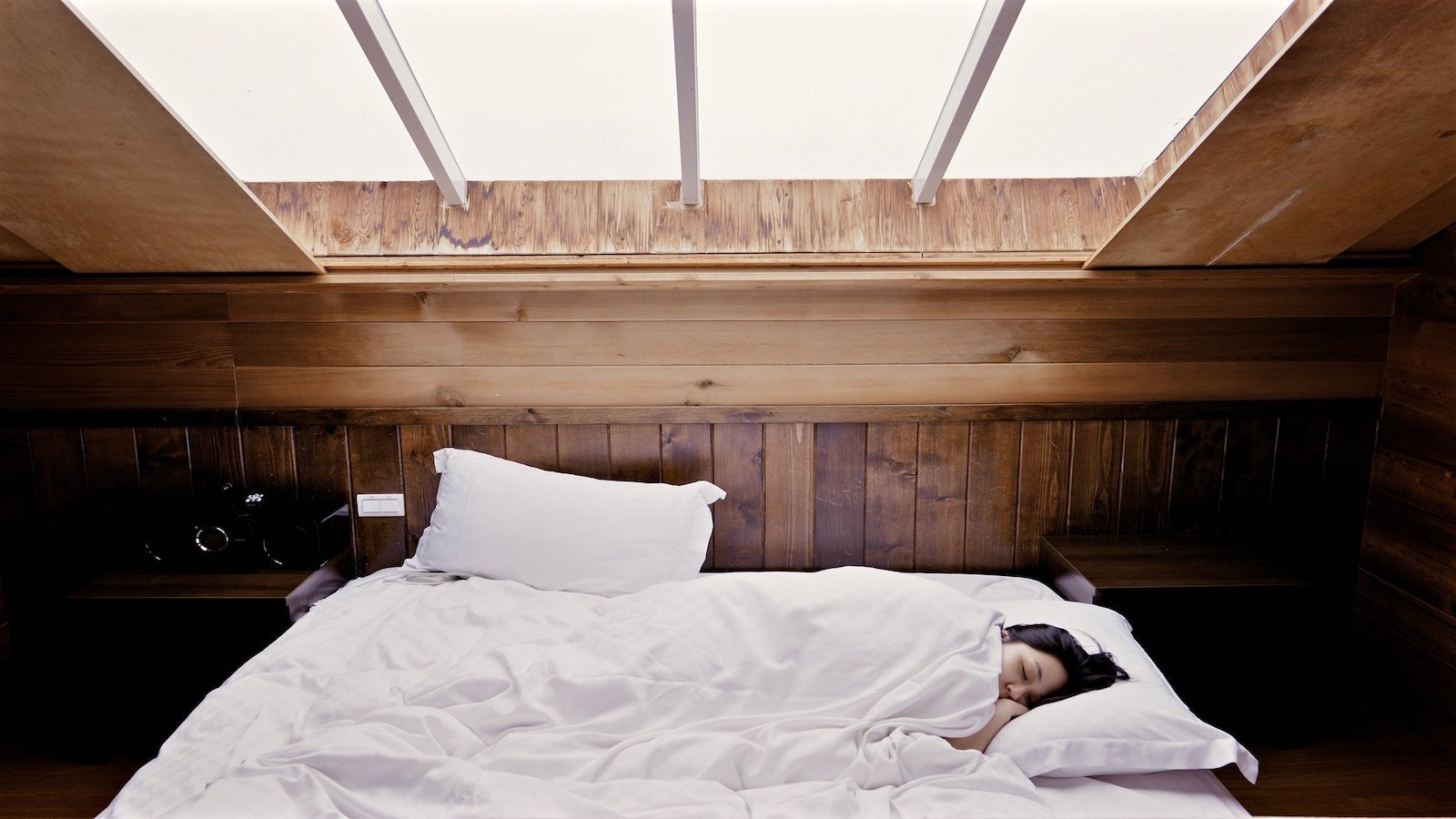Trouble falling asleep?
A lack of good sleep can have many adverse effects on your personal health and happiness. If you're not catching enough zzz's, here are some tips to help you fall asleep, and stay asleep.
#1 - Nighttime Routine
One simple way to help yourself to a restful night’s sleep is to create a nighttime routine. The blue light and visual stimulation keep your mind too active to rest, so turn off your computer and your phone at least 1 hour before bed.
Do something relaxing, like yoga or a short meditation. With each bedtime activity, think about finishing your day and readying yourself for sleep.
#2 - Earplugs
Wearing earplugs is an excellent way to improve your quality of sleep. The action of putting in your earplugs alone can send a signal to your body that it is time to relax.
You may not even know how many times in the night your sleep is being disturbed by outside sounds. The earplugs will help filter out noise throughout the night, helping you to have a more consistent sleep and reaching those complete REM cycles.
#3 - Exercise During the Day
Exercising during the day can greatly increase your ability to fall asleep and achieve restful sleep. Exercise relieves physical tension and mental stress.
Experts don’t recommend exercising right before bed, however, as this will stimulate your mind and body making it harder to relax.
#4 - Cut the Caffeine
This one is a no brainer but is sometimes hard to remember when we need more energy to complete our work in the late afternoon. It is recommended that you stop drinking caffeine at least 7 hours before sleep.
Caffeine stays in our systems and keeps our brains and bodies active, making it difficult to relax and drift off to sleep. Switch to non-caffeinated beverages after lunch for a peaceful night’s sleep.
#5 - No Snacks Right Before Bed
Are you a late-night snacker? Lots of people get hungry before bed, but this can make it difficult to fall asleep. Our bodies are processing and digesting the food, keeping us awake as we try to fall asleep.
Try to have your last snack at least 1 hour before you would like to fall asleep. If you need a small bite before bedtime, then opt for something light and healthy to avoid an overactive stomach as you lay down to rest.
#6 - Dark Room
The light in your room has a major impact on your rest. Optimally, a completely dark room helps to keep your body in rest mode.
Try a blackout curtain to block out any outside light. Cover any electronic lights that may be in your room, including computer lights that may blink and disturb your sleep. When you get into bed, consider having a more muted bedside light so you can turn off overhead lights.
#7 - Good Pillows, Bedding, and Mattress
The quality of your bedding can make a big difference in the quality of your sleep. Experiment with different pillows and bedding to get the optimal items for your body.
You can add foam toppers to your mattress or rounded pillows for under your neck. Look for anything that makes your body more comfortable so you can get a solid night’s sleep.
#8 - Set a Sleep Schedule
The more regular you can make your sleep schedule the better. Going to bed and waking up at the same time every day can make a big difference in the quality of your sleep and how easy it is to fall asleep.
Try setting an alarm or reminder for when you should start your bedtime routine and morning wake-up. A light-based alarm clock can be a great alternative to a sound alarm clock, as it connects with your body’s natural response to waking with the sun.
#9 - Soothing Sounds
Sometimes your body just needs help realizing that it’s time to rest. Soothing nighttime sounds can do the trick. The sounds of crickets or a babbling brook can remind your lizard mind that when the sun goes down, it’s time to sleep.
If nature sounds aren’t your thing, you could listen to relaxing classical music. Just try not to listen to pump up music before bedtime, as fast tempos and loud drums can over-excite the mind and make it difficult to settle down for the night.
#10 - Falling Asleep, Again
We all wake up in the middle of the night sometimes. When this happens, it’s important not to get too in your head and create anxiety about getting back to sleep. Make relaxation your goal, not sleep, and do some deep breathing. Try scanning your entire body starting at your toes, relaxing each part of your body as you go.
Postpone list-making and worry until the morning, but keep a scratch pad near your bed if you regularly have those thoughts bouncing around your brain. Avoid looking at screens, as this will re-stimulate your mind.
Just a few small changes can make a big difference in your sleep cycle. Start with one or two, like establishing a bedtime routine and wearing earplugs, and you might notice that is enough to move your sleep patterns in the right direction.
Still looking for more? Check out this Guide to Sleep Relaxation.
Good night!








Share:
Peace Talks with NIVA - Time Is Running Out to #SaveOurStages
Getting Through The Pandemic As An Artist